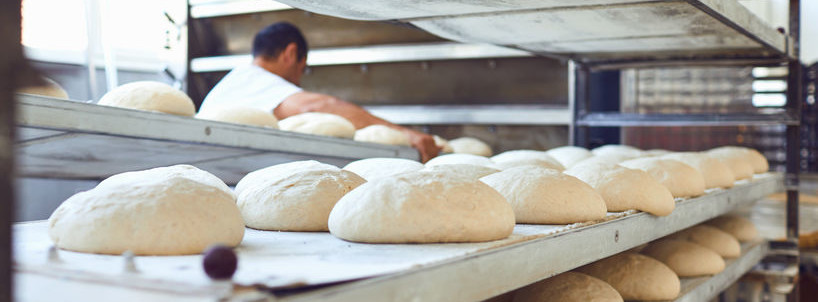
The food and baking industry is facing new challenges and requests from the consumer, but they are not without solutions. To give your customers quality products with the customization and specifications they want, let the expert developers at Lallemand Baking Solutions help. Built on the core ingredient technology of enzymes, bacteria, yeasts and fermentates, we can collaborate with you to meet your customers’ needs.
Based on our decades of long-standing industry experience, market insight, knowledge of ingredients and baking processes, Lallemand offers innovative solutions for the baking industry.
Here’s how we can help with 5 baking trends:
Clean Label Applications
This substantial trend is driven by customers paying attention to labels and food research. As the demand for “clean label” products grows, it’s up to bakeries to replace the chemical sounding ingredients with natural and simple ones. Solutions are based on the synergies between pure and matrix encapsulated enzymes in combination with ascorbic acid to replace emulsifiers and oxidants like azodicarbonamide (ADA) and calcium peroxide.
Non-GMO Baking Applications
Many key bakery ingredients such as corn syrup, soy flour, or sugar from sugar beets fall on the GMO ingredient list. While Lallemand has been providing our bakers with Non-GMO baker’s yeast for over 90 years, we wanted to make sure our customers know that our baker’s yeast is truly GMO free. So every year our products are tested by BioChecked™, an independent Third Party, to make sure our baker’s yeast meets or exceeds Non Genetically Engineered Certified™ Standards.
As a further step for our North American customers, the following products are Non-GMO Project (NGP) Verified:
- NGP verified cream, crumbled and compressed fresh bakers yeast commercialized under the brand name Lal^Ferm®
- NGP verified instant dry yeast under the brand name Instaferm®
Organic Baking Applications
Within the clean label and baking trend, a further step is organic certification. Regulations for organic yeast have changed over the last decade in Europe and the US, and now yeast has to be considered in organic baking recipes.
There are equivalence agreements between different countries, meaning that organic products made and certified in one country are recognized also in another country. A number of our products can meet these organic labeling requirements.
Sweet Dough Applications
High quality and consistent yeast performance in sweet dough systems is crucial. In products such as donuts or pastry, the yeast is exposed to high concentrations of sugar, creating osmotic stress on yeast cells. To balance the osmotic pressure created by the presence of sugar, yeast releases water, slowing down its metabolism and hence, its fermentative performance.
That’s why our speciality yeast products have a high ability to metabolize maltose. In lean doughs, sugars like sucrose and fructans are degraded to simple sugars by yeast’s endogenous invertase enzyme. Simple sugars being the yeast’s preferred fuel are degraded within the first hour of fermentation, leaving maltose as the only fermentation substrate.
Frozen Dough Applications
Frozen doughs are a highly convenient solution, for food producers and customers alike. However, long periods at low temperatures can generally decrease dough leavening due to an overall loss of yeast viability, which ultimately leads to a significant decrease in final bread quality.
Yeast’s ability to maintain its gassing activity when frozen, or cryoresistance, depends on its trehalose content. When producing yeast, a trade-off between levels of trehalose and protein must be done. That’s why we pay special attention to levels and processing, based on your desired result. At Lallemand Baking Solutions we develop exclusively, in close co-operation with our customers, the best performing enzymatic and sensory solutions based on their own recipe.

